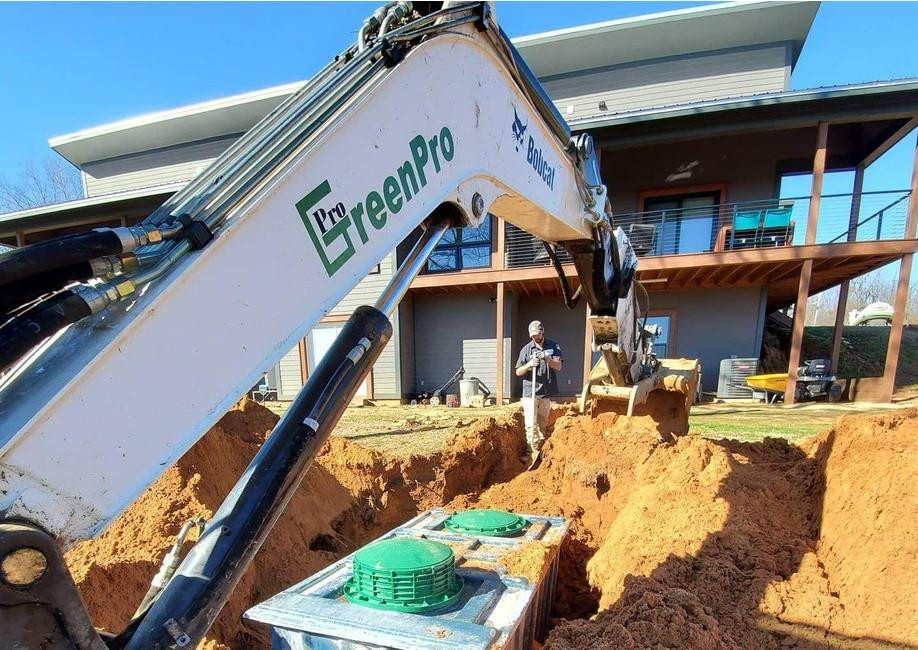Septic tanks may not be the most glamorous topic, but they play a vital role in wastewater management for millions of homes around the world. If you live in a rural area or a location without access to municipal sewage systems, chances are you rely on a septic tank to safely and efficiently process your household wastewater. In this article, we'll explore what septic tanks are, how they work, and why they are crucial for both rural and suburban homeowners.
What Is a Septic Tank?
A septic tank is a large, underground container made of concrete, fiberglass, or plastic that collects, stores, and treats wastewater from your home. It is typically buried in the yard and connected to the plumbing system of the house. Septic tanks are designed to hold and process the waste and wastewater produced by your household.
How Do Septic Tanks Work?
The basic principle behind septic tank operation is relatively simple. Here's a step-by-step overview of how septic tanks work:
Collection:
Wastewater from your home flows into the septic tank through pipes connected to your sinks, toilets, showers, and washing machines. This wastewater includes everything that goes down your drains, such as toilet waste, soap, detergent, and food particles.
Separation:
Once inside the septic tank, the wastewater undergoes a natural separation process. Solid materials and heavy particles, like human waste and food scraps, sink to the bottom, forming a layer of sludge. Oils, grease, and lighter particles float to the top, creating a scum layer.
Treatment:
The middle layer, known as effluent, is the relatively clear liquid that remains between the sludge and scum layers. Bacteria and enzymes in the tank help break down and digest the organic matter in the effluent, purifying it to some extent.
Disposal:
Treated effluent exits the septic tank through an outlet pipe and flows into the drain field or leach field. This is a network of perforated pipes buried in the ground, surrounded by gravel or other porous material. The effluent is released into the drain field and slowly infiltrates the soil, undergoing further natural treatment as it percolates through the earth.
Soil Filtration:
The soil acts as a natural filter, removing harmful bacteria and contaminants from the effluent as it percolates through. By the time the effluent reaches the groundwater, it is typically clean and safe, posing minimal environmental risks.
Why Are Septic Tanks Important?
Septic tanks serve several critical functions that make them indispensable for homeowners in areas without access to municipal sewage systems:
Effective Wastewater Treatment:
Septic tanks provide an effective means of treating household wastewater, removing harmful bacteria and contaminants before it is released into the environment.
Environmental Protection:
Properly maintained septic tanks help protect the environment by preventing untreated sewage from contaminating groundwater, surface water, and soil.
Cost-Efficiency:
Septic systems are often more cost-efficient than connecting to municipal sewer systems, as they eliminate monthly sewage fees and are relatively low-maintenance.
Independence:
Homes with septic tanks enjoy independence from municipal utilities, providing flexibility and autonomy in wastewater management.
Longevity:
With regular maintenance, septic tanks can have a long lifespan, providing reliable wastewater treatment for decades.
Maintaining Your Septic Tank
To ensure the longevity and efficiency of your septic tank, regular maintenance is crucial. Here are some essential maintenance tips:
Regular Pumping:
The solid sludge layer in the septic tank should be pumped out by a professional septic tank service every 3 to 5 years, depending on household size and usage.
Water Conservation:
Limit excessive water use to prevent overloading the system. Fix any leaks promptly and avoid long showers, running the dishwasher excessively, or using a lot of water during laundry.
Proper Disposal:
Avoid disposing of non-biodegradable items, such as sanitary products, wipes, or cooking oils, down your drains or toilets. These can clog the system.
Avoid Chemicals:
Minimize the use of harsh chemicals and antibacterial soaps that can disrupt the natural bacteria in the septic tank responsible for breaking down waste.
Regular Inspections:
Schedule regular inspections by a septic tank professional to check for signs of damage, leakage, or potential issues.
FOR MORE INFO:-
septic tank cleaning in Mississippi
Septic Tank Service in Water Valley
Utility Installation in Mississippi
Mississippi Septic Tank Service





Comments